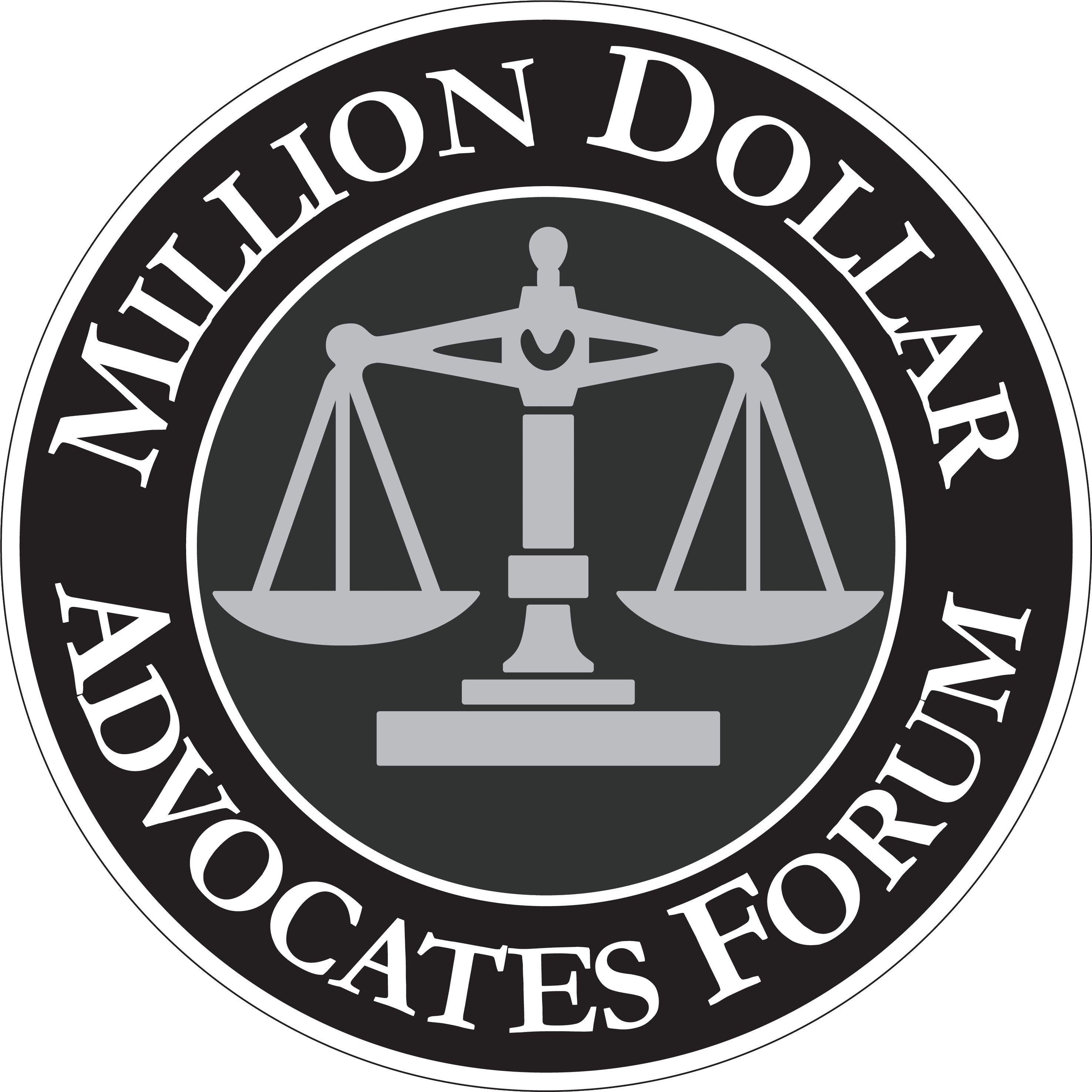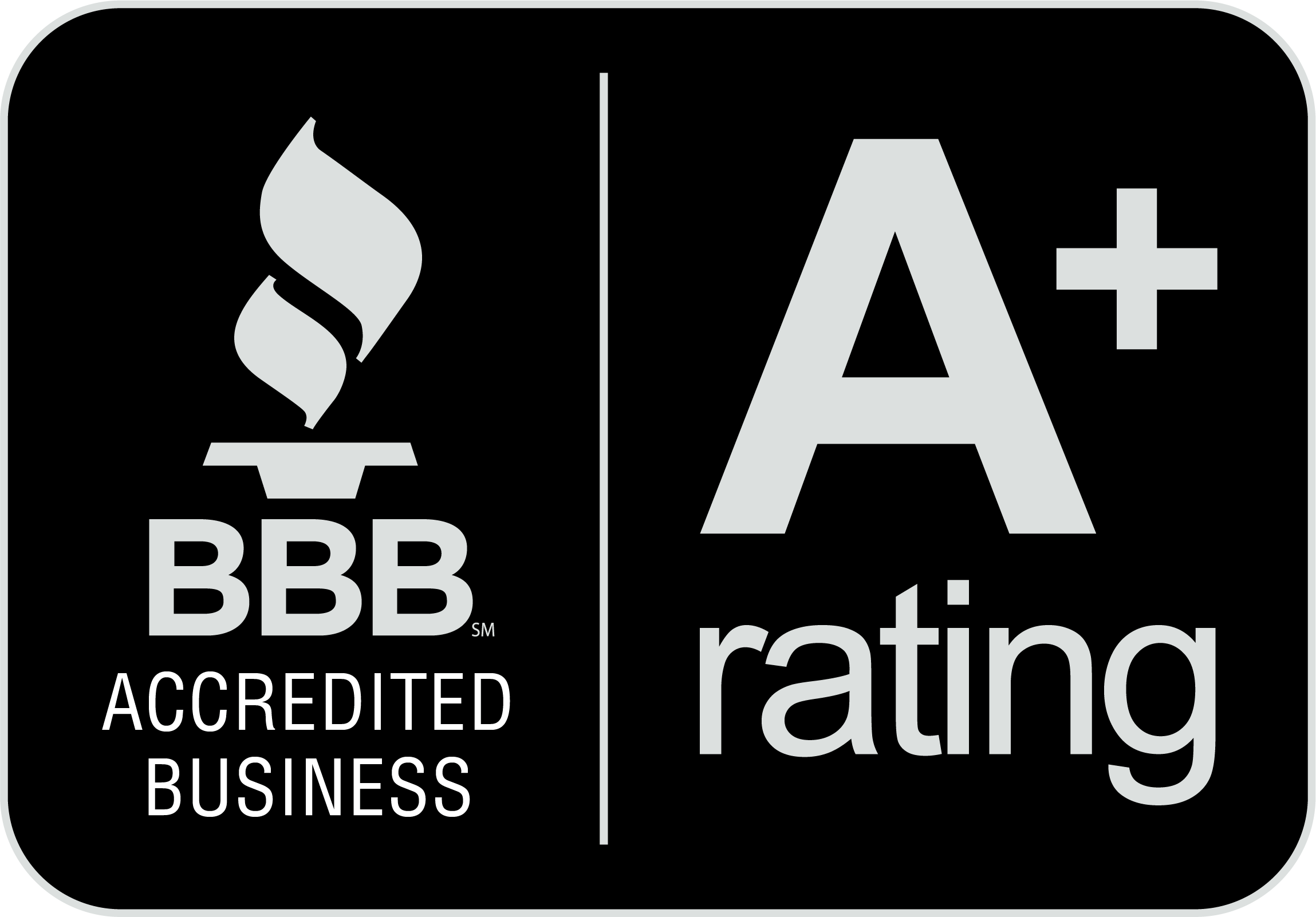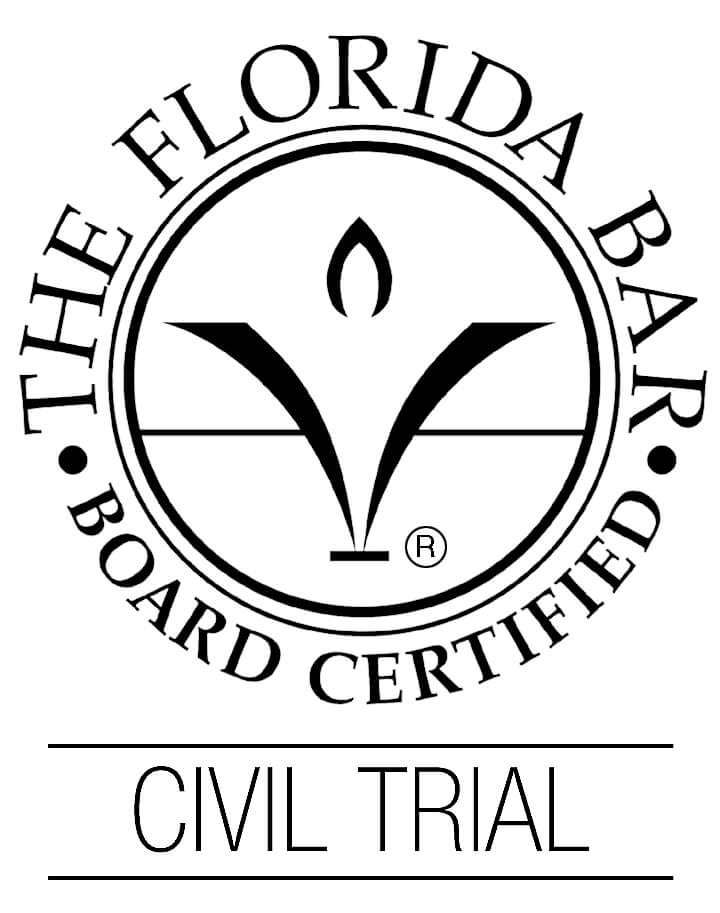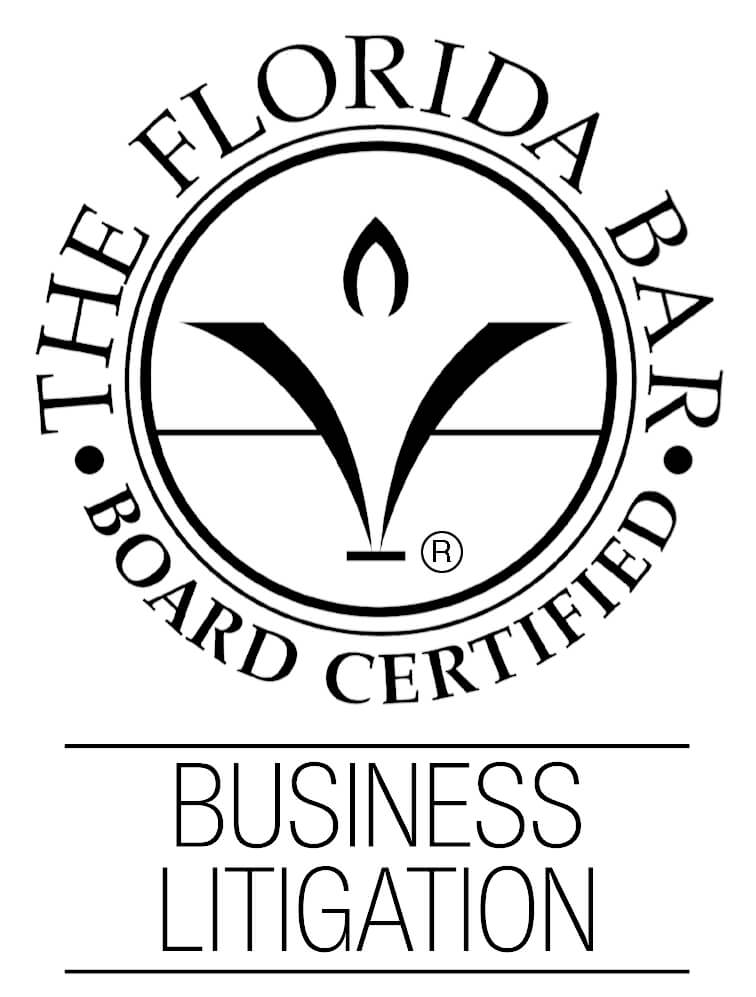Insurance Guide
You pay for insurance to act as a safety net in the worst moments of your life. It comes with a certain peace of mind, knowing you’re protected, but that coverage can disappear as quickly as it’s added when insurance providers act unfairly.
This behavior, called bad faith, is illegal in Florida. When insurance providers diminish, delay, or deny claims unfairly, you can fight back through the claims process and, if needed, in court.
Since 1997, The Nation Law Firm has advocated for the rights of Florida residents who found themselves at a crossroads with their insurance company. Our team brings decades of experience, a strong backing of resources, and experts in law to your case, giving you a leg up and, more importantly, an opportunity to step away from the legal side and focus on your recovery.
Get started with our team for no upfront costs through our free case evaluation.
Common Reasons for Insurance Claim Denials
Insurance claim denials range from a variety of reasons, some valid, others not. While every situation is different, most denials fall into a few predictable categories:
- Lack of Coverage: The claim isn’t covered under your policy, often due to specific exclusions or limitations.
- Policy Exclusions: Some types of damage, like floods, mold, or wear and tear, are excluded unless added through endorsements or separate policies.
- Missed Deadlines:Claims submitted outside the policy’s required reporting window are often denied automatically.
- Insufficient Documentation: Missing receipts, unclear photos, or inconsistent paperwork can lead to a denial, even if the damage is legitimate.
- Alleged Misrepresentation: Insurers may accuse policyholders of omitting key details when applying for coverage or filing a claim.
- “Not Medically Necessary” or “Not Proven” (for Health Claims): Insurance may argue that a treatment, service, or medication doesn’t meet their internal definition of necessity.
- Pre-Existing Conditions or Prior Damage: For both health and property claims, insurers may cite older conditions as a reason to deny payment.
Providers may use these reasons because they’re true, but they may also assert one of these examples or another reason under false pretenses. If they do, our team is here to help you bring the truth to light and your claim to justice.
Understanding Insurance Terminology
Insurance terms and jargon are complicated to understand. It’s their language to use against you, so it’s a good idea to freshen up on the key terms before you start the process:
Key Term | Definition |
Deductible | What you pay out of pocket before your insurance starts paying. |
Exclusion | A type of damage your policy doesn’t cover, like floods or mold, unless added. |
Endorsement /Rider | An optional add-on that expands your coverage (e.g., for jewelry or electronics). |
Coverage Limit | The maximum amount your policy will pay for a loss. |
Claim Denial | A written refusal by your insurer to pay for your claim. |
Actual Cash Value (ACV) | The depreciated value of your item at the time it was damaged. |
Replacement Cost Value (RCV) | The cost of replacing your item with something of a similar kind and quality. |
Familiarity with these terms gives you a competitive edge. If your provider is trying to use complex language against you, we’re here to help.
7 Steps to Take When Your Insurance Claim Is Denied
Your provider can deny a claim for many reasons, but that’s not the end of the process. Whether it’s a health, property, or business claim, you have the right to push back and appeal their decision.
Here are the steps you should take:
- Review the Denial Letter Carefully:Read the explanation, look for the specific reason your claim was denied, and note any deadlines listed for appeals to get yourself started.
- Call the Insurance Company: Speak with a claims rep and ask for a clearer explanation if anything is confusing. Take notes, including who you talked to and what they said.
- Request Your Full Policy: If you don’t have it on hand, request a full copy of your policy so you can confirm whether the denial is legitimate or not.
- Gather Key Evidence:Collect everything related to the claim, including photos, receipts, repair estimates, medical records, emails, and text messages, to provide in your appeal.
- Ask for a Written Reconsideration: If the issue is simple (like missing paperwork), ask the insurer to reopen or reconsider the claim before filing a formal appeal.
- File a Formal Appeal (If Needed): If a reconsideration doesn’t work, file a formal appeal. Include a letter explaining why the denial was incorrect and attach your evidence.
- Get Legal Help if Things Stall: If you’re running into dead ends or suspect bad faith, The Nation Law Firm can help you get things back on track.
This process can take some time, but it shouldn’t last forever. If your provider intentionally delays the process, our team is here to advocate for your rights.
Evaluating Your Insurance Policy
Your policy is the framework of how you’ll cover compensation, the amount, and the specific rules that govern the process. Understanding this document is the key to knowing whether your provider is acting fairly and if you’re receiving your full payout.
Here’s a quick guide to learn your insurance policy:
- Read the Declarations Page First:This summary outlines your coverages, limits, deductibles, and add-ons. It’s the quickest way to see what you’re paying for and where you may have gaps.
- Look for Common Exclusions: Most policies don’t cover flood damage, mold, gradual wear and tear, or pre-existing issues. If the damage doesn’t happen suddenly or accidentally, your insurer may deny it.
- Check for Sub-Limits: Even if your total coverage looks high, categories like jewelry, electronics, or water damage may be capped at a much lower amount unless you’ve added specific endorsements.
- Understand Your Deductibles: You may have different deductibles for different types of losses. For example, Florida homeowners often face a higher hurricane deductible than for standard claims. Knowing this information upfront makes you better prepared for upfront costs.
- Pay Attention to Language: Terms like “sudden,” “accidental,” “actual cash value,” and “replacement cost” can dramatically affect how and whether your claim is paid. Don’t assume you know these; Check for exact definitions in your policy.
- Ask Questions Before There’s a Problem: If you’re unsure whether your policy covers a specific risk (like flood or windstorm), ask your insurer immediately, not after damage occurs. It’s better to clarify your protection before you need it.
Insurance policies aren’t designed to be straightforward. The legal language that entangles the rules of your claim is made for insurance providers and legal experts. Our team can help you decipher these complexities, help you move your claim forward, and ensure your best interests are protected.
Difference Between Flood Damage and Water Damage
Although physically similar, flood and water damage are treated differently under the umbrella of insurance. The line between the two often comes into question when both are present.
What’s Considered Flood Damage?
Flood damage generally refers to water that enters your home from a rising outside source, such as:
- A storm surge
- Heavy rain that causes water to pool and seep in
- Overflow of lakes, rivers, or canals
- Flash floods
Homeowners' insurance policies do not cover flood damage. Separate flood insurance is required, which can come through the National Flood Insurance Program or a private insurer.
What’s Considered Water Damage?
Water damage is usually covered when it comes from a sudden, accidental event inside your home, such as:
- Burst pipes or water heater failure
- Overflowing sinks, bathtubs, or toilets
- Leaking appliances like washing machines or dishwashers
- Roof leaks caused by wind or hail
However, damage caused by neglect, seepage over time, or lack of maintenance is usually excluded.
Why Does This Matter?
In Florida, insurers frequently try to label damage as flood-related to shift responsibility off the homeowners' policy, even if wind or roof damage let the water in, and onto you. Since the two are so similar, providers can do this easily.
That’s why having The Nation Law Firm at your side is so powerful. With someone who knows the rulebook, you can push back against unfair practices quickly and efficiently, bringing you toward your rightful compensation as soon as possible.
How Insurance Companies Investigate Claims
Insurance companies have to investigate your claim before they can come to a decision. This process is often one-sided, favoring the provider, and may result in unfair denials or reductions in compensation.
Here’s a quick overview of what to expect:
- You’re Assigned a Claims Adjuster: They’ll inspect the damage and estimate costs.
- They Gather Documentation: Photos, receipts, and your statements are reviewed.
- They Determine the Cause of Loss: Insurers want to classify the damage as something excluded, like flood, instead of wind.
- They Review Your Policy Details: They look for exclusions, caps, and pre-existing conditions.
- They May Look for “Inconsistencies”: Insurers may investigate your history to find ways to deny coverage, especially after large storms.
If you’re being asked to jump through hoops, facing vague excuses, or suspect your claim is being handled in bad faith, it may be time to bring in legal help. The Nation Law Firm can help you bring in independent investigators to validate your claim, push back against a denial, and advocate for rightful value.
Bad Faith Practices by Insurance Companies
Insurance companies have a legal duty to treat policyholders fairly, but some use intentional delays, vague denials, or aggressive investigations to protect themselves instead of honoring their promises. This behavior, called “bad faith,” is frustrating, unfair, and illegal.
Here are some common examples of bad faith behavior:
- Unreasonable Delays: Repeated excuses or lack of communication, causing you to miss deadlines, especially after you’ve submitted everything they’ve asked for.
- Denying a Valid Claim Without Justification: Refusing to pay without a clear or lawful reason, or issuing a denial based on misapplied policy terms.
- Lowball Settlement Offers: Offering far less than the actual cost of repairs or treatment, hoping you’ll accept without knowing, or out of desperation.
- Ignoring or Misrepresenting Evidence: Deliberate attempts to selectively ignore submitted documents, statements, or expert testimonies for their own gain.
- Misusing Policy Exclusions: Claiming damage is excluded when it actually falls under your coverage, like calling wind-driven rain “flooding” to avoid paying.
Insurers can be held accountable when they act in bad faith under Florida’s Unfair Insurance Trade Practices Act. You may be entitled not only to the full value of your claim, but also additional damages for the harm caused by the delay or denial.
Legal Options for Policyholders
You don’t have to accept their refusal to cooperate. If your provider is acting in bad faith, Florida law gives policyholders several legal avenues to challenge unfair treatment and recover what they’re owed.
You may have legal options if:
- Your claim was denied without a proper explanation
- Your payout doesn’t reflect the true cost of repairs or replacement
- The insurer delayed your claim unnecessarily
- The investigation seemed biased or incomplete
- Your policy was canceled or rescinded after you filed a claim
Depending on your situation, this could mean filing a formal complaint with the state, negotiating a settlement with legal support, or even pursuing a bad faith lawsuit to recover full compensation, plus court costs and attorney’s fees.
Anyone unsure of their legal options has a friend and powerful legal ally in The Nation Law Firm. We’ll help you understand what options you have and walk you through the next steps.
What to Look for in an Insurance Lawyer
Finding the right lawyer is a decision you should consider carefully. Who you choose must have the capability to succeed, an accessible team, and an affordable cost, all wrapped up in one.
But why?
- Capability: You don’t want the legal team protecting you to fall short halfway through your claim. When choosing a law firm, make sure they have the capability to succeed and a history of doing so in the past.
- Accessibility: You need your representation to be available when needed. Whether it’s an urgent deadline, recent update, or nagging question, it’s important that you’re able to contact your legal team quickly. It’s easier to do this online, but having a local, physical location doesn’t hurt.
- Cost: Legal representation comes at a cost, but it doesn’t have to be overwhelming. Law firms that operate on a contingency, meaning they’re paid when successful, offer a more approachable fee.
The Nation Law Firm embodies these pillars of legal strength. Since 1997, we’ve advocated for the rights of those wronged by insurance companies in the Sunshine State. Our team is local in the heart of Florida, and we’re prepared to advocate for your justice just like any neighbor would.
Preventing Common Insurance Claim Mistakes
Many delayed or denied claims are the result of small, preventable mistakes. Knowing the common pitfalls will help you move through the process more efficiently.
Here are some mistakes to watch out for:
- Waiting Too Long to File: Florida law sets strict timelines for filing claims, especially for hurricane damage. Delaying too long could disqualify your claim entirely.
- Failing to Document the Damage: Always take clear photos and videos as soon as it’s safe to do so. Document everything before you make temporary repairs or clean up any debris.
- Not Keeping Receipts or Estimates: Save receipts for temporary repairs, hotel stays, meals, or anything related to your loss. Without proof, you could lose reimbursement.
- Giving Incomplete or Vague Information: Be clear, accurate, and thorough. Missing details or assumptions can lead to avoidable delays or denials.
- Making Repairs Too Soon: Unless they’re for safety or to prevent further damage, don’t make permanent repairs before your adjuster inspects the property. They need to understand the true damage, and repairs will mask the truth.
- Not Reading the Policy First: Understanding your coverage, deductibles, and exclusions upfront can help you avoid filing claims that were never covered to begin with.
If your claim is denied or undervalued, don’t assume you’re out of options. The Naion Law Firm can help you advocate for rightful value – for no upfront costs.
Frequently Asked Questions
What are the most common reasons insurance companies deny claims?
Claims are often denied due to policy exclusions, missing documentation, missed deadlines, or the insurer’s interpretation of the damage as uncovered, like wear and tear or flooding.
How can I evaluate whether my insurance company’s denial is legitimate?
Start by reviewing the denial letter and comparing it to your policy’s language. If the reasoning seems vague, unfair, or doesn’t match your coverage, it may be worth having it reviewed by our team.
What should I do if my insurance claim is denied?
Request a written explanation, gather additional documentation, and prepare to file an appeal. If the insurer continues to delay or deny payment, contact an attorney to help you challenge the decision.
How can I determine what type of coverage my policy provides?
Start with the declarations page. It outlines your coverage types, limits, and deductibles. Continue to review the full policy to understand exclusions and endorsements, or ask your provider directly for clarification.
What is the difference between flood damage and water damage?
Flood damage comes from rising water outside the home (e.g., storm surge, overflowing rivers) and typically requires separate flood insurance. Water damage is usually covered when caused by sudden internal events, like burst pipes or roof leaks.
Can an insurance company deny a claim based on technicalities?
Yes. Many claims are denied for procedural reasons, such as late filing, incomplete forms, or missing documentation. These denials can often be appealed or challenged with proper support.
How can an attorney help me dispute a denied insurance claim?
The Nation Law Firm can review your policy, challenge unfair denials, gather expert opinions, negotiate with the insurer, and file a lawsuit if needed. Legal support often improves your chances of recovering the full value of your claim, and you can team up with us for no upfront costs.
What evidence should I gather to support my insurance claim appeal?
Photos of the damage, repair estimates, receipts, expert assessments, and copies of all communication with your insurer. The more organized and detailed your records, the stronger your appeal.
What is bad faith in insurance claims, and how can I identify it?
Bad faith occurs when insurers intentionally delay, deny, or undervalue valid claims. Warning signs include vague explanations, repeated requests for the same.






.svg)
